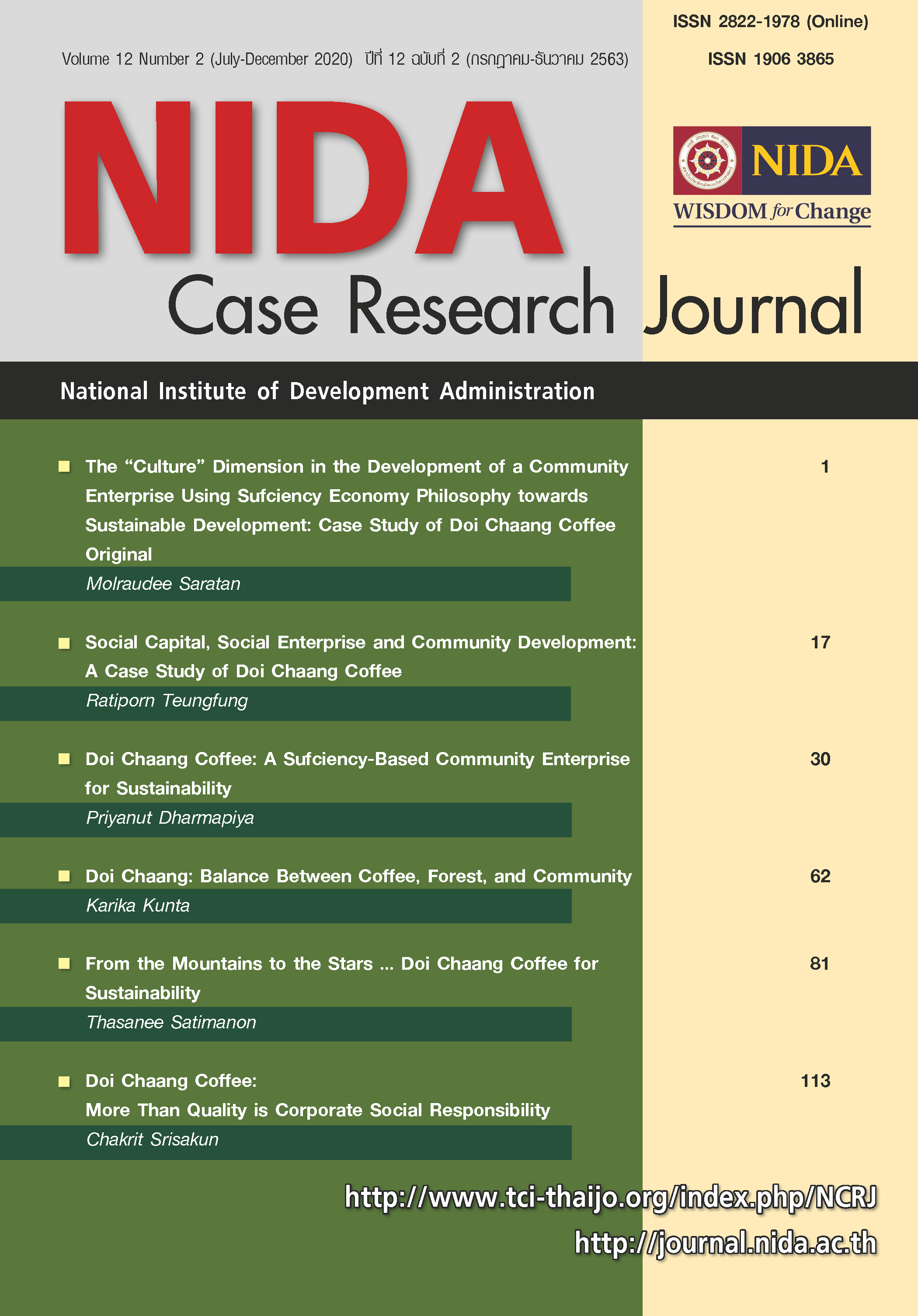Doi Chaang Coffee: More than quality is corporate social responsibility
Keywords:
Doi Chaang Coffee, Corporate Social Responsibility, Arabica coffeeAbstract
Doi Chaang Coffee as a brand to represent the world class coffee brand in terms of the best Arabica coffee which came from the only one origin, Baan Doi Chang village, Chaiang Rai province in Thailand based on 8,000 acres of growing area. The premium quality Arabica coffee under this brand emerged from managing of the whole processing such as planting, harvesting, containing, packing, distributing, and retailing to maintain the signature and quality of Arabica coffee from upstream to downstream.
Corporate social responsibility (CSR) as the significant issue that Doi Chaang Coffee concerned more than the quality of coffee. For instance, building the strength and unity in the community among coffee growers of Doi Chaang based on maintaining a higher than market buying price for coffee cherries. Returning the benefits from performing of business to improve the livelihood and general well-being among the farmers or coffee growers in Baan Doi Chang village. Encourage the coffee growers in terms of their knowledge of high-quality cultivation. Obviously, Doi Chaang Coffee has been recognized by several national and international organization which related to the corporate social responsibility such as EU Organic farming, USDA ORGANIC and Fairtrade.
Over than 15 years that several customers trusted and recognized this brand not only in the local market but also in the international market. If the successful of this business based on CSR activities rather than the quality. What does the factors or forces behind the CSR activities to drive this brand worldwide?
References
Department of Intellectual Property (2016). Thai Geographical Indication. Retrieved 10, 2020 from http://www.ipthailand.go.th/th/gi-002.html
Doi Chaang Coffee. (2020). Doi Chaang Coffee. Retrieved May 1, 2020, from https://doichaangcoffee.co.th/en.
European Commission. (2020a). Organics at a glance. Retrieved 4, 2020, from https://ec.europa.eu/info/food-farming-fisheries/farming/organic- farming/organics-glance_en
European Commission. (2020b). Geographical indications. Retrieved 5, 2020, from https://europa.eu/youreurope/business/running-business/intellectual- property/geographical-indications/index_en.htm
FAIRTRADE. (2020). The Core Fairtrade Mark. Retrieved 7, 2020, from https://www.fairtrade.org.uk/What-is-Fairtrade/Using-the-FAIRTRADE-Mark
Specialty Coffee Association. (2020). Who We Are. Retrieved 6, 2020, from https://sca.coffee/
United States Department of Agriculture. (2020). Organic Standards. Retrieved 3, 2020, from https://www.ams.usda.gov/grades-standards/organic-standards.
Downloads
Published
How to Cite
Issue
Section
License
Copyright (c) 2024 NIDA Case Research Journal

This work is licensed under a Creative Commons Attribution-NonCommercial-NoDerivatives 4.0 International License.





